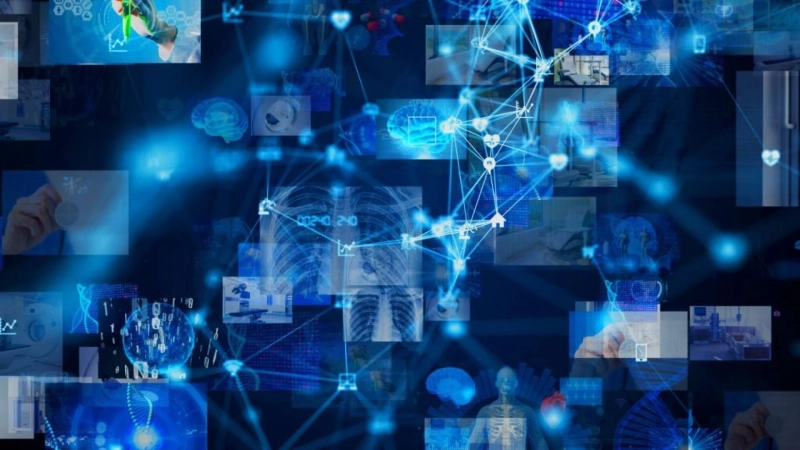The healthcare landscape is evolving rapidly with the advent of telemedicine and the integration of innovative technologies. Among these advancements, telemedicine kiosks have emerged as a promising tool for managing illness. These self-contained, interactive stations provide patients with the convenience of accessing healthcare services remotely. In this article, we delve into the role of telemedicine kiosks in managing illness and explore their potential impact on healthcare delivery.
The Role of Telemedicine Kiosks in Managing Illnesses
Telemedicine kiosks play an important role in managing illnesses in a variety of ways. As an example, here are a few:
1. Enhancing Access to Healthcare
One of the key advantages of telemedicine kiosks is their ability to improve access to healthcare services, especially for individuals in underserved areas or those with limited mobility. By placing these kiosks in easily accessible locations such as pharmacies, workplaces, and community centers, patients can conveniently connect with healthcare professionals without the need for a physical visit. Telemedicine kiosks effectively bridge the gap between patients and healthcare providers, ensuring that quality care is accessible to all.
2. Immediate and On-Demand Care
Patient care can be delivered in a timely manner by telemedicine kiosks, providing patients with immediate access to healthcare providers. Whether it's a minor ailment, chronic condition management, or a non-emergency situation, individuals can utilize the kiosks to consult with healthcare providers in real-time. This on-demand care significantly reduces waiting times and alleviates the strain on emergency departments and urgent care centers.
3. Remote Consultations
Telemedicine kiosks facilitate remote consultations, allowing patients to interact with healthcare professionals through video conferencing or audio calls. Patients can discuss their symptoms, receive medical advice, and have their questions addressed without the need for an in-person visit. Healthcare providers can assess the patient's condition, make diagnoses, and recommend appropriate treatment options remotely. Remote consultations through telemedicine kiosks are especially beneficial for individuals who have difficulty traveling or those who prefer the convenience and privacy of virtual healthcare interactions.
4. Diagnostic Capabilities
A telemedicine kiosk is equipped with diagnostic tools that can help patients get a preliminary idea about the condition they are suffering from. These kiosks may include devices such as digital stethoscopes, blood pressure monitors, thermometers, and examination cameras. Patients can perform basic diagnostic tests under the guidance of healthcare professionals, providing valuable information for the assessment and management of their illness.
5. Medication Management and Prescription Services
Telemedicine kiosks can support medication management and prescription services. Patients can receive electronic prescriptions, which can be directly sent to pharmacies for convenient pickup. Additionally, healthcare providers can use the kiosks to educate patients about proper medication usage, potential side effects, and follow-up instructions.
6. Chronic Illness Management
It is imperative that chronic illness management be carried out using telemedicine kiosks. Patients with conditions such as diabetes, hypertension, or asthma can utilize these kiosks for regular check-ups, medication refills, and remote monitoring. The kiosks enable healthcare professionals to track patient progress, make necessary adjustments to treatment plans, and provide ongoing support, leading to improved disease management and better patient outcomes.
7. Privacy and Confidentiality
It is important to protect the privacy and confidentiality of patients when using telemedicine kiosks. These kiosks are designed to provide a secure environment for teleconsultations, ensuring that personal health information is protected. Patients can feel confident in discussing their medical concerns, knowing that their privacy is safeguarded during virtual consultations.
8. The Future of Telemedicine Kiosks
The future of telemedicine kiosks in healthcare is bright, with the technology continually evolving to meet the changing needs of patients and healthcare providers. In the coming years, telemedicine kiosks will become more sophisticated, offering more advanced medical devices and improved connectivity to healthcare providers. The kiosks will also become more mobile, allowing healthcare providers to move them from location to location easily.
Moreover, telemedicine kiosks will play a critical role in improving healthcare access in developing countries, where traditional healthcare services are often limited. The kiosks can be set up in remote areas, enabling patients to access quality healthcare services remotely.
Conclusion:
Telemedicine kiosks are revolutionizing the healthcare industry, offering innovative solutions to healthcare access barriers. The kiosks offer numerous benefits, including enhancing healthcare accessibility, reducing healthcare disparities, providing convenience, improving patient outcomes, and satisfaction. The future of telemedicine kiosks is bright, with the technology continually evolving to meet the changing needs of patients and healthcare providers. As healthcare systems continue to adapt to the changing healthcare landscape, telemedicine kiosks will play a crucial role in improving healthcare access and outcomes.


